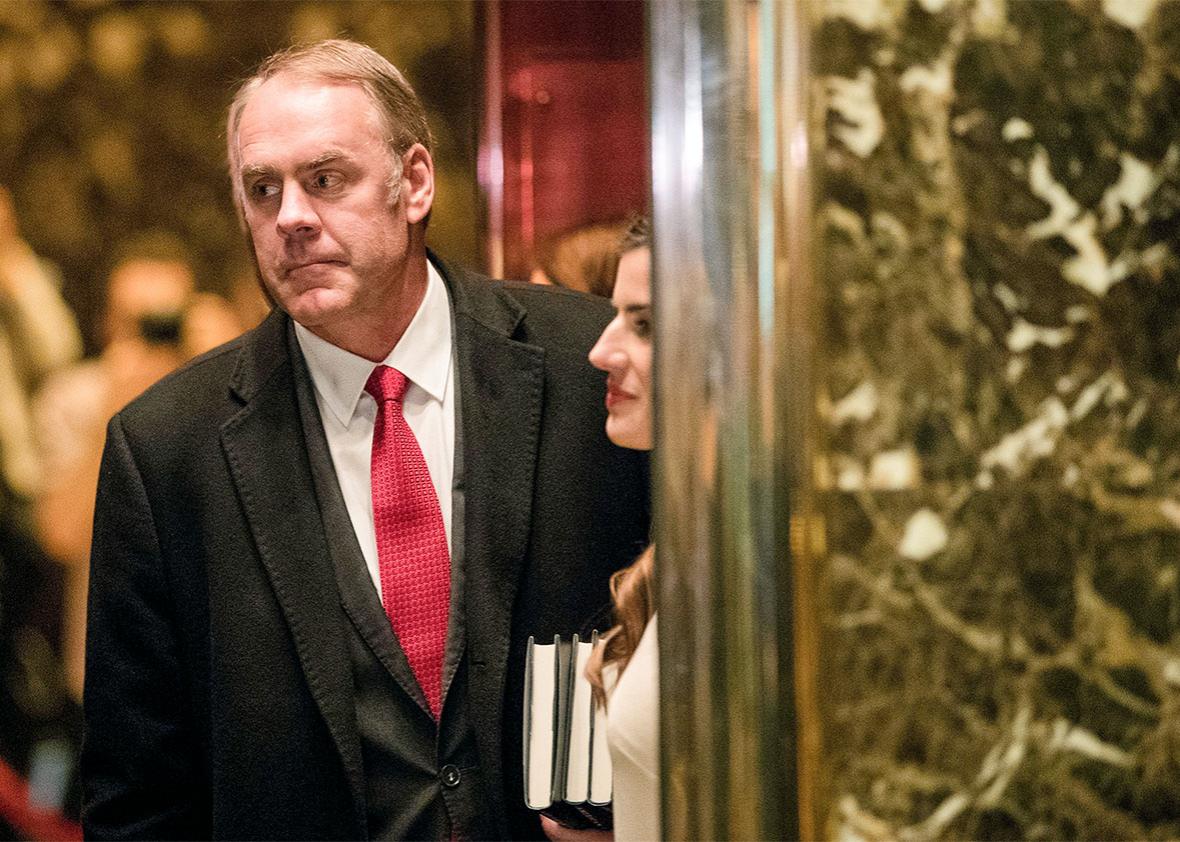This story originally appeared on the Huffington Post and is republished here with permission via Climate Desk.
President-elect Donald Trump has tapped Rep. Ryan Zinke, R-Montana, to become the next interior secretary, according to reports in the Washington Post and Politico.
If his nomination is approved, Zinke, an early Trump supporter and former Navy SEAL commander, will oversee the National Park System and drilling and mining on public lands.
A Trump transition team representative didn’t respond to a request for comment. Rep. Cathy McMorris Rodgers, R-Washington, who emerged last week as the top contender to lead the Department of the Interior, conceded in a post on Facebook that she didn’t get the job, saying it was an “honor” to have been considered by Trump. Sen. Steve Daines, R-Montana, issued a statement congratulating Zinke as an “outstanding pick.”
“Ryan Zinke protected us abroad and in combat and I know he will do the same for our treasured public lands as Secretary of the Interior,” Daines said. “As a westerner, Ryan understands the challenges of having the federal government as your largest neighbor and I couldn’t think of a better fit for Secretary of the Interior.”
Slashing environmental regulations appears to be a top priority of the next administration, as Trump fleshes out his proposed Cabinet with climate-science deniers and those who have alarmingly deep ties to the coal, oil, and gas industries. Zinke has acknowledged that the climate is changing but appears to have become bullish on fossil fuels in recent years.
“I think, without question, the climate is changing,” Zinke said in a four-minute audio recording of a 2015 interview with a local Montana newspaper. “It has always changed, but it is changing. If you go up to Glacier Park and have your lunch on one of the glaciers, you will see the glacier recede while you eat lunch. I have seen the change in my lifetime.”
But Zinke quickly veered into industry talking points, insisting he supports an “all-of-the-above” energy policy that includes coal mined in his state.
“Something’s going on,” he said. “I think you need to be prudent. It doesn’t mean I think you need to be destructive on fossil fuels. But I think you need to be prudent.”
In June, Zinke’s office published a press release meant to “blast” Interior Department regulations on coal, oil, and gas extraction on federal and tribal lands.
On his website, Zinke said he “will not tolerate selling our public lands,” though he complained that federal red tape has “hurt Montana.”
Zinke, 55, described by the Washington Post as “a lifelong hunter and fisherman,” has consistently voted against environmentalists. He has a paltry 3 percent on the League of Conservation Voters’ scorecard. The Center for American Progress listed Zinke on its “anti-parks caucus,” a collection of lawmakers the group says jeopardize the future of nature preserves.
The Department of Interior controls 500 million acres of land―or roughly 20 percent of the U.S. landmass. It oversees a lot of oil, gas, and coal development, both onshore and offshore. The agency also manages the outer continental shelf, a point of tension between the fishing and tourism industries and offshore energy developers, particularly after the 2010 BP oil spill in the Gulf of Mexico. Earlier this year, President Barack Obama paused oil drilling off the Atlantic Coast and halted new coal leases on public lands―moves Trump seems likely to overturn.
In 2008, Zinke called himself a “Teddy Roosevelt Republican” who viewed climate change as a national security risk, according to a 2014 letter to the editor published by a Montana climate consultant in a local newspaper.
“If Ryan Zinke was running for Congress in 2010, he’d have my support. Because in 2010 he was unafraid to put leadership before politics,” Steve Thompson, president of Whitefish, Montana–based Climate Realty LLC, wrote in the letter. “Sadly the opposite is now true. I now regard Zinke to be an unprincipled, self-glorifying, dangerously cynical phony.”
